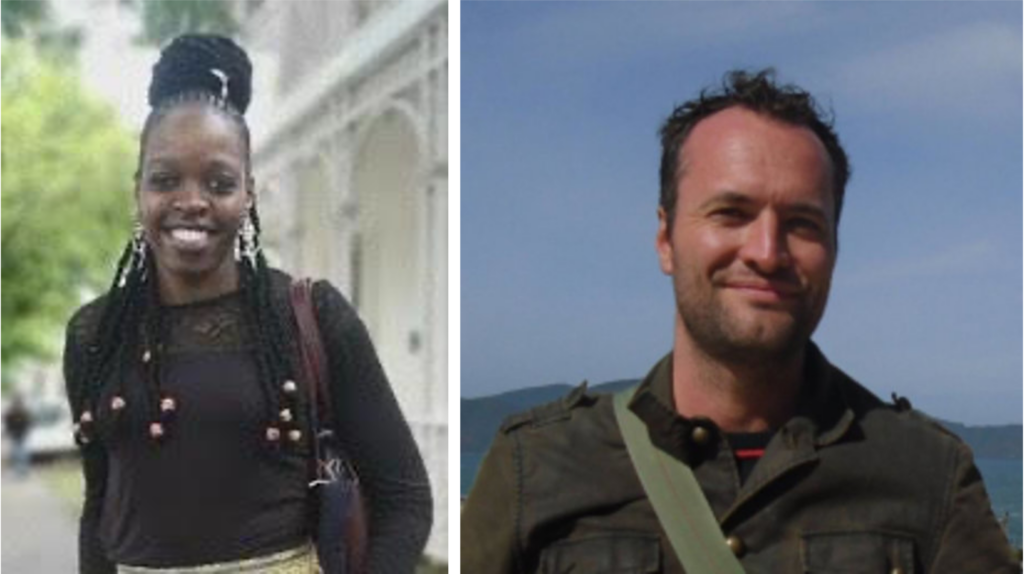
We are Linda Khumalo and Gert Van Hecken. We collaborate on a project to reimagine M&E from a decolonial perspective. Here we share some lessons learned. Linda is an evaluation practitioner and scholar contributing to the Made in Africa Evaluation (MAE) discourse who sees the challenges of applying a transformative evaluative lens. Gert is an academic has experience in evaluation of “conservation and development” programmes in Central America.
Linda started as a Young Emerging Evaluator (YEE) strengthening M&E systems in South Africa. She witnessed evaluation hierarchies in Africa: geographic and racial, (who leads), experiential (who is legitimized), economic (who funds), and power and influence (who decides).
Gert, in collaborative action-research processes with campesino and environmental movements in rural Nicaragua, has witnessed uneven power structures in donor-funded conservation programmes who dismissed the lived experiences of peasants and smallholders, with evaluation ‘experts’ often selectively mining for evidence that speaks to the needs and desires of international donors.
We both question the often extractive, top-down nature of evaluation practice: predetermined methodologies and processes set by international development partners and (self)proclaimed “experts” (scholars, consultants, NGOs,…), not reflective of local contexts and alternative worldviews, broader political economy, and colonial legacy of (development) evaluation.
Our struggles for space in a field with a long colonial history, exposed the deep-seated uneven power geographies and the limited agency one has to influence evaluation processes. (For Linda) this stems from being an African evaluator but also speaks to the question of agenda setting, i.e., who sets the agenda in African evaluation, as the majority of development programmes are still largely funded by international donors. Also, the organic participation of communities in development programmes that directly affect them has translated into extractive evaluation processes where communities typically function merely as respondents from whom data is collected (even if “participatory” or “culturally-sensitive”) to complete the evaluation. This asymmetry in where knowledge gets generated and extracted is often mirrored by methodological homogeneity that risks reproducing a colonial bias of remote and universal expertise to assess the realities of “the Other” (e-value-other).
Transformative evaluation involves engaging with the endurance of the white gaze in development, infesting evaluation theory and practice in the Global South, wherein many principles and practices of evaluation are rooted in White supremacy and serve the narrative of White Saviorism. Dismantling these structures is critical to ensuring the legitimisation of indigenous ways of knowing and being. We call for embracing the subjective understanding of one’s reality as a basis for comprehending the impact of our values and actions on others as pertinent to resolving the contestation between MAE and Western evaluation practice. Similarly, in conservation and development programmes, the engagement with alternative knowledge systems and the dismantling of systems rooted in Western European aesthetics and unequivocal faith in logics of modern progress that have historically shaped (neo)colonial strategies of resource exploitation and dehumanization is critical.
Some practical steps to walking the journey towards a more transformative evaluation practice include:
- Acknowledging and respecting diversity of contexts and taking time to not only understand local communities’ values and needs, but also define (evaluation) agendas and questions according to their needs and desires;
- Acknowledgement, consciousness and engagement with uneven power dynamics, ensuring evaluations further social and environmental justice;
- Understanding evaluation as a potential tool for social transformation rather than a backward-looking compliance exercise serving donor needs
- Challenging the white gaze in evaluation, radically rethinking evaluation training to be defined by local contexts, culture and knowledges, through learning disobedience, accentuating indigenous knowledge and ways of being, and ensuring that evaluations lead to tangible change to communities
Rad Resource
The “White Saviour” deal for nature by Gert Van Hecken and Vijay Kolinjivadi
The American Evaluation Association is hosting Decolonization in Evaluation Week with some of our colleagues. Do you have questions, concerns, kudos, or content to extend this AEA365 contribution? Please add them in the comments section for this post on the AEA365 webpage so that we may enrich our community of practice. Would you like to submit an AEA365 Tip? Please send a note of interest to AEA365@eval.org. AEA365 is sponsored by the American Evaluation Association and provides a Tip-a-Day by and for evaluators. The views and opinions expressed on the AEA365 blog are solely those of the original authors and other contributors. These views and opinions do not necessarily represent those of the American Evaluation Association, and/or any/all contributors to this site.
